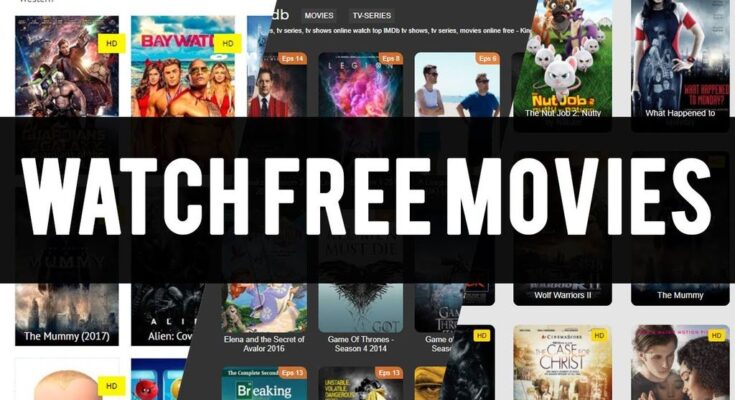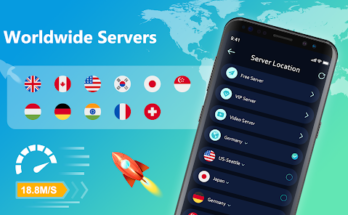The advent of the internet has revolutionized how we consume media, particularly movies. Gone are the days when watching a movie required a trip to the cinema or renting a DVD. Today, the ability to watch movies online has become a ubiquitous and convenient option for millions around the globe. With just a few clicks, you can access a vast library of films from various genres, eras, and languages, all from the comfort of your own home. This article will delve into the concept of watching movies online, explaining what it is, how it works, its features, and the pros and cons of this modern entertainment method. We’ll also explore alternatives to online movie streaming and conclude with some insights into its overall impact.
What is Watch Movies Online?
“Watch movies online” refers to the ability to stream films directly from the internet without the need for physical media such as DVDs or Blu-rays. This process involves accessing movie content via websites, apps, or platforms that host films and allow users to watch them in real-time. The content is typically streamed, meaning it is delivered in small chunks and played almost immediately as it downloads, providing a seamless viewing experience.

There are two main types of online movie services:
- Subscription-Based Services: Platforms like Netflix, Amazon Prime Video, and Disney+ require users to pay a monthly or annual fee to access a library of films and TV shows. These services often produce their own content, known as “originals,” which are exclusive to their platform.
- Free Streaming Services: Websites like Crackle, Tubi, and YouTube offer free access to movies, usually supported by advertisements. While these platforms may not have the latest blockbusters, they provide a wide range of classic films and independent productions.
How Watch Movies Online Work
The process of watching movies online involves several key components that work together to deliver content to your device:
- Content Delivery Network (CDN):
- Hosting the Content: Movies are stored on servers across the globe. These servers are part of a Content Delivery Network (CDN), which ensures that the movie is delivered from the server closest to your location, reducing load times and buffering.
- Streaming Process: When you select a movie to watch, your device connects to the CDN, and the movie begins to stream. The data is sent in small packets, which your device plays in real-time.
- Streaming Protocols:
- HTTP Live Streaming (HLS): This is the most common streaming protocol used by services like Netflix and Hulu. It breaks down the video content into small chunks and delivers them in sequence. This method allows for adaptive bitrate streaming, where the quality of the video adjusts based on your internet connection speed.
- Real-Time Messaging Protocol (RTMP): Used by platforms like YouTube, RTMP is a low-latency protocol that ensures smooth and fast video streaming, especially for live content.
- User Interface and Experience:
- Content Browsing: Online movie platforms usually feature a user-friendly interface where you can browse through various categories, genres, or personalized recommendations based on your viewing history.
- Playback Controls: Once a movie is selected, you can control playback with options to pause, rewind, fast-forward, or adjust the quality settings. Some platforms also offer subtitles, language options, and additional content like behind-the-scenes footage.
- Subscription and Payment Models:
- Subscription Services: For platforms like Netflix, you must create an account and subscribe to a plan. Payments are typically recurring, and subscribers get access to all available content during their subscription period.
- Pay-Per-View: Some services, such as Amazon Prime Video, offer both subscription-based access and pay-per-view options for new releases. Users can rent or purchase individual movies, which are then available to watch for a limited time.
- Compatibility and Device Support:
- Cross-Platform Access: Most streaming services are accessible via multiple devices, including smartphones, tablets, smart TVs, gaming consoles, and web browsers. This flexibility allows users to watch movies on their preferred device without any limitations.
- Offline Viewing: Some services, like Netflix and Amazon Prime Video, allow users to download movies for offline viewing. This feature is particularly useful for watching movies while traveling or in areas with limited internet access.
Features of Watch Movies Online [Completely Detailing]
- Vast Content Library:
- Diverse Selection: Online movie platforms offer a wide range of movies from various genres, including action, drama, comedy, horror, and documentaries. Users can easily find something that suits their taste.
- Exclusive Content: Many streaming services produce original movies and series, which are available exclusively on their platform. This unique content often drives subscribers to choose one service over another.
- High-Quality Streaming:
- HD and 4K Content: Most platforms offer movies in high-definition (HD) and even 4K resolution, providing a cinema-like experience at home. Some services also support HDR (High Dynamic Range) for enhanced color and contrast.
- Adaptive Streaming: The streaming quality automatically adjusts to match your internet speed, ensuring smooth playback even on slower connections.
- Personalized Recommendations:
- Algorithm-Driven Suggestions: Based on your viewing history, streaming platforms can recommend movies and shows you might enjoy. This personalization enhances the user experience by making it easier to discover new content.
- Curated Lists: Many platforms also offer curated movie lists, such as “Top Picks,” “New Releases,” or “Trending Now,” helping users stay updated with the latest popular content.
- Multi-Device Access:
- Cross-Device Synchronization: Users can start watching a movie on one device and continue on another without losing their place. This feature is particularly useful for those who switch between devices frequently.
- User Profiles: Services like Netflix allow multiple user profiles under one account, each with its personalized viewing history, recommendations, and parental controls.
- Subtitle and Language Options:
- Multilingual Support: Many movies are available with subtitles in multiple languages, making them accessible to a global audience. Some platforms also offer dubbed versions in different languages.
- Closed Captioning: For viewers with hearing impairments, closed captioning provides a text representation of the dialogue and significant sound effects.
- Interactive Features:
- Watch Parties: Some platforms, like Amazon Prime Video, offer “watch parties,” where users can watch a movie simultaneously with friends or family, even if they are in different locations. This feature often includes a chat function to share reactions in real time.
- Interactive Content: Certain platforms are experimenting with interactive movies, where viewers can make choices that affect the storyline, creating a unique viewing experience.
- Parental Controls:
- Age Restrictions: Parents can set age-appropriate content restrictions on profiles used by children, ensuring that they only access suitable movies.
- Content Filtering: Some services provide options to filter content based on ratings or specific criteria, giving parents more control over what their children watch.
- Offline Viewing:
- Download Options: Many platforms allow users to download movies for offline viewing, a convenient feature for those with limited internet access or when traveling.
- Storage Management: Downloaded content often comes with an expiration date, and users can manage storage space by deleting watched movies.
Pros of Watch Movies Online [Use Table]
| Pros | Description |
|---|---|
| Convenience | Watch movies anytime, anywhere, on various devices, without needing physical media or traveling to a cinema. |
| Vast Library of Content | Access to a wide range of movies across genres, eras, and languages, including exclusive content. |
| Cost-Effective | Subscription services often cost less than regularly purchasing or renting individual movies. |
| High-Quality Viewing | Enjoy movies in HD, 4K, and with HDR, offering a premium viewing experience at home. |
| Personalized Recommendations | Algorithm-driven suggestions help discover new content tailored to your preferences. |
| No Commercial Interruptions | Unlike traditional TV, subscription-based services offer uninterrupted viewing without ads. |
| Multiple Device Support | Stream on various devices, including smartphones, tablets, smart TVs, and more, with cross-device synchronization. |
| Offline Viewing | Download movies for offline viewing, ideal for situations without internet access. |
Cons of Watch Movies Online [Use Table]
| Cons | Description |
|---|---|
| Subscription Fatigue | Managing multiple subscriptions can become overwhelming and expensive. |
| Internet Dependency | Streaming quality and availability depend on internet speed and stability, which can be an issue in some areas. |
| Content Availability | Not all movies are available on every platform, leading to potential dissatisfaction if a desired film is not accessible. |
| Geographical Restrictions | Some content may be restricted based on your location due to licensing agreements. |
| Potential for Overconsumption | The ease of access can lead to binge-watching, impacting productivity and lifestyle. |
| Data Usage | Streaming high-quality movies consumes significant data, which may be a concern for users with limited internet plans. |
| Piracy and Legal Issues | Some free streaming sites may host pirated content, leading to legal risks and poor viewing quality. |
Watch Movies Online Alternatives [Use Table]
| Alternatives | Features |
|---|---|
| Cable or Satellite TV | Traditional TV services that offer movie channels as part of their package, though limited by scheduled programming. |
| DVD/Blu-ray Rentals or Purchase | Physical media that allows ownership or rental of movies, providing access without internet dependency. |
| Cinemas | Watching movies on the big screen with high-quality sound and visuals, though limited to current releases. |
| Public Libraries | Free access to a selection of DVDs and Blu-rays, though availability may vary based on location and demand. |
| YouTube | A vast platform with both free and paid movies, offering a mix of classic films and new releases. |
| Amazon Prime Video | A subscription-based service with a large library of movies, including pay-per-view options for new releases. |
| Hulu | A streaming service that offers a mix of movies, TV shows, and original content, available via subscription. |
| Disney+ | Focuses on family-friendly content, including Disney classics, Marvel, Star Wars, and National Geographic films. |
| HBO Max | Offers a wide selection of movies, including HBO originals and blockbuster releases, available via subscription. |
| Apple TV+ | A streaming service with original movies and series, available on Apple devices and other platforms. |
Conclusion and Verdict: Watch Movies Online
In conclusion, watching movies online has transformed the way we consume entertainment. It offers unparalleled convenience, a vast content library, and high-quality viewing experiences. With features like personalized recommendations, multi-device access, and offline viewing, it caters to a broad audience with varying preferences. However, it’s not without its drawbacks, including subscription fatigue, internet dependency, and potential legal issues with certain free streaming sites.
For those who value convenience and a wide selection of content, online movie streaming is an excellent choice. However, it’s essential to weigh the pros and cons and consider alternatives based on personal needs and preferences. Whether you opt for a subscription service or explore free options, the key is to find a balance that suits your lifestyle and viewing habits.
FAQs Watch Movies Online
- Is it legal to watch movies online for free?
- It depends on the platform. While many free streaming sites operate legally, others may host pirated content, which is illegal. Always use reputable services to avoid legal issues.
- What are the best platforms to watch movies online?
- Popular platforms include Netflix, Amazon Prime Video, Hulu, Disney+, and HBO Max. Each offers a unique selection of content and features.
- Can I watch movies online without an internet connection?
- Yes, many services like Netflix and Amazon Prime Video allow you to download movies for offline viewing.
- How much data does streaming a movie use?
- Streaming a movie in HD typically uses around 3 GB per hour, while 4K streaming can use up to 7 GB per hour. Data usage varies based on the quality of the stream.
- What are the risks of using free movie streaming sites?
- Risks include exposure to pirated content, which is illegal, and potential security threats from malicious ads or downloads. It’s safer to use well-known, legitimate platforms.



